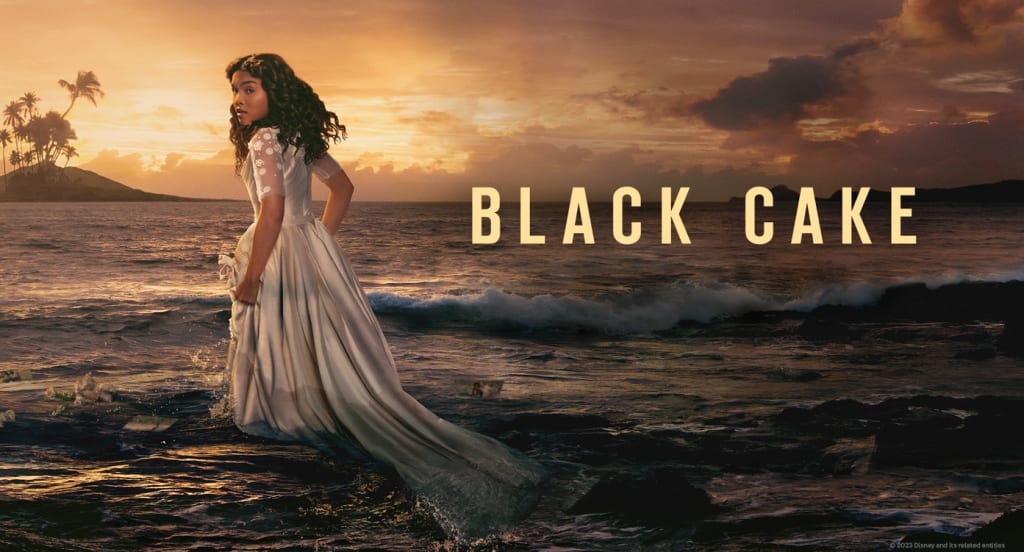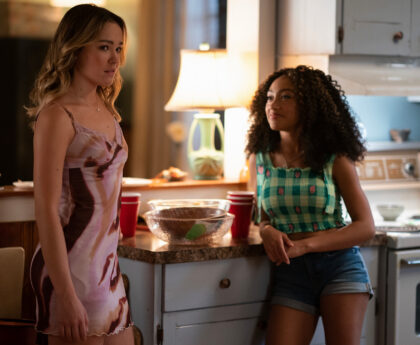Black Cake has several positive qualities. It’s based on Charmaine Wilkerson’s best-selling book of the same name. Mia Isaac, who is fantastic, is the singer at the front. And it’s about the realism of Black identity, how a young woman of color must constantly remake herself as she tries to find her way in a difficult environment. Unfortunately, the first three hours of the eight-part voyage, which premiered on Hulu on November 1, 2023, were alarmingly dull and repetitive.
The opposite should be true. It’s always possible that my white male perspective is too removed from that of a runaway Jamaican kid negotiating racial antagonism in the 1960s and 1970s for me to fairly evaluate such a show, but I don’t think that’s the case here. The ability to empathize is not based on one’s race. Black Cake may not be very excellent, or at least not as good as the novel, or even, most generously, as good as it could be.
Brief Synopsis and Review of Season One of “Black Cake”
Despite the problems, which I shall try to outline, there are many positive aspects to this article. The series’ beauty is immediately apparent in the pilot, which shows Covey (Isaac) sprinting toward the roiling Caribbean Sea. Isaac’s portrayal of Covey is always evolving as she takes on new identities and roles in front of new settings.
Covey is on the run after being forced to marry Clarence “Little Man” Henry (Anthony Mark Barrow) to pay off her late father’s debts. Her carefree, slightly rebellious upbringing is shattered by events beyond her control, setting a pattern for the rest of her life.
Later, Chipo Chung’s Eleanor Bennett passes away from cancer, leaving behind a flash drive of recordings she made to explain the finer details of her life to her estranged children, Byron (Ashley “Bashy” Thomas with an alarming American accent) and Benny (Adrienne Warren).
Covey’s coming-of-age travelogue is contextualized by sequences set in the present day, which also probe the ways in which the past influences the here and now and lies shape the truth. However, this is a considerably less exciting historical period to stay in than the past, and Black Cake suffers whenever it stays here for too long.
The bulk of the show’s lengthy episodes are comprised of flashback scenes with Eleanor’s narration, and these are the best parts of the show. Black Cake is understandably less interested in the murder mystery that the death of Little Man creates than it is in Covey’s constant reinventions. There is a much stronger sense of location in the historical passages, whether they are set in Jamaica (which is really mentioned) or the Scottish Glens or London.
Isaac takes on the burden of this situation better than anyone else in the cast. When she isn’t the focal point, things aren’t as interesting as they otherwise could be. Even while there is the occasional one-note or grating side character, the stakes in the past are higher and the setting is more vivid. Despite this, Covey serves as the audience’s rock, a consistently likeable but remarkably resilient companion amid loneliness and trauma. When she isn’t around, her presence is missed.
Is there any value in adapting Black Cake?
Black Cake could be excessively wordy any way, some might argue. Despite stretching to an hour, episodes rarely feel complete. The best parts are excellent, but they’re bookended by dull, strangely empty passages that repeat the same concepts over and over again in slightly different guises. The series, like Covey herself, tends to rehash the same ideas in different ways in the hopes that one of them would stick. You will eventually get the gist of the argument.
It’s hard to argue against recommending this as an adaptation, especially to audiences for whom the messaging will ring truer and the underlying undercurrents (whether ethnic, cultural, or familial) will feel more familiar. There is no such thing as too much of this type of well-crafted, multilayered television. But approach with caution. Black Cake has a tad too much pride for its own good.
Read More – Star of “Stranger Things,” Joe Keery, Admits, “It’s Time” for Series to End





